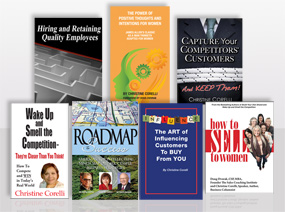
Enhance your ability to close sales by developing the habit of asking questions and listening to what your prospect or existing customer has to say before you start selling. It is the most effective way to learn about your customer’s needs. Asking questions and listening also helps to gain your customer’s confidence, and shows them you care.
All too many salespeople jump at the opportunity of getting in front of a customer. Instead of taking the soft approach, they start their conversation by stating how great their product or service is. Or, they’ll ask one quick question such as “How are you?” and start selling, instead of asking questions. This could be due to the fact that it’s incredibly difficult to get an appointment or speak on the phone to a real live buyer.
Do you think you might be losing business because you’re talking when you should be listening? If you do, you need to remember that your customers need you to listen to them about what is important to them. They want to make sure that you understand their needs, concerns, priorities, problems, and expectations. If you don’t listen, they’ll go to one of your competitors who will.
Refrain from the impulse to start selling until you’ve asked a few questions. Become a real pro by directing your prospect’s thinking to uncover their needs.
In your initial meeting or when a customer walks into your store, make it a habit to ask questions like the following …
“How’s your business doing?”
“What’s most important to you about …”
“What do you want to accomplish with this project?”
“How’s the car running for you?”
“Why are you considering this venture?”
“What motorcycle is the one you dream of riding?”
“What educational sessions are most appealing to you for our next conference?”
“Can you tell me about your needs?”
“What are some of the challenges you’re facing?”
“What, specifically, are you looking for in a provider?”
“Would you like me to point out the sales rack for you?”
“What challenges have you had in the past?”
“How fast did your last order sell off?”
“Do you have a surplus in your inventory?”
“What would you change from the last company you worked with?”
“What are the capabilities you would like to have with our product?”
“How do you handle the financing?”
“What type of model most appeals to you?”
“What style do you like to wear?”
Ask open-end type questions — How, What, Why, Who — and take careful notes. Asking questions is highly beneficial for these reasons:
Asking Questions Lead to Answers
- Answers lead to rapport, and discovering what the other person needs to know and needs to hear from YOU to influence them to buy.
- Asking questions gets your buyer’s attention, and gives you control of the conversation.
- Asking questions allows your customer to talk, so you’ll gain insight on how to respond
- Asking questions give you the opportunity to observe the customer’s personality and body language, so you’ll know how to act and respond appropriately.
- Asking questions demonstrates that you have a genuine interest in people.
Stay “YOU” Focused
It’s not about you and how great your company and product is. It’s about them. Always be sure to use the word YOU in the questions.
“Shaun, from what you’ve just told me, I can see you’ve worked hard to get where you are. How can I help you do better?”
To gather additional insight, and even better information when interacting with customers, you may want to personalize your questions. For example:
“Harry, I’d like your opinion on the new…”
“Laura, give me your thoughts about…”
“Mike, tell me how you would react to…”
Here’s a technique to keep customers talking so you can listen more. Ask a question for clarification. Here are a few of the most effective questions to ask that will help you control the conversation:
“How do you mean, exactly?”
“Can you give me an example?”
“What has made the biggest impact?”
It is almost impossible for your customer to not answer these. Then, you can follow up with other open-ended questions and keep the interaction going. Whenever you ask for their personal feelings about an idea or situation, you’re more likely to learn more and sell more!
Questions That Get Passive Customers to Talk
Many times, people won’t readily respond to your sales pitch. They may simply be passive, and not very talkative at all. In this case, you’ll simply have to draw their thoughts from them by asking questions to learn what’s on their mind. Following are examples:
“How do you feel about our plan?”
“What’s your opinion?”
“What are your thoughts?”
“Are you comfortable with everything we’ve discussed?”
“What’s the most important thing to you of all that we’ve been discussing?”
“What can I do to help you with your job?”
“How would you like to proceed?”
“What do you think about the style?”
Train Yourself to Be a Good Listener
Why is it that so few companies train their people on listening skills? Well, train yourself. Below are a few tips to enhance your listening skills.
- Block out all other thoughts and stay focused.
- Nod your head and maintain eye contact.
- Nod your head when listening.
- Put yourself in your customer’s position as you hear. Listen not only to words, but listen to what your customer is seeking to convey. Listen with intent to understand.
- Resist the temptation to keep talking. Don’t be afraid of silence. Ask more questions, if necessary.
You’ll never listen yourself out of a customer. Make it a habit to ask questions to learn about your prospect’s desires, needs, opinions and fears, and you’ll know how to position your product or service where it will be perceived as being critical to your customer’s needs, wants, desires, and even their success.

